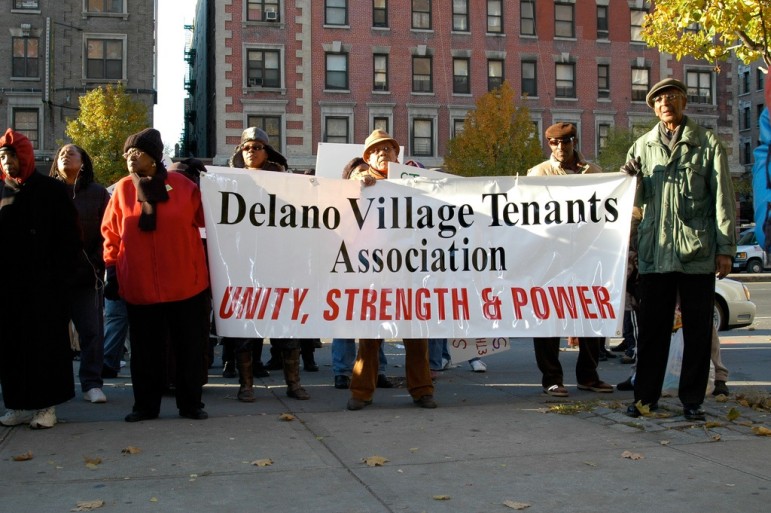
September 28, 2015; New York Newsday
In an effort to prevent both homelessness and gentrification in 15 New York City neighborhoods, Mayor Bill de Blasio announced the city would spend an additional $12.3 million this year in legal aid to low-income tenants facing eviction at the hands of “unscrupulous landlords.”
The neighborhoods include Central and West Harlem; Crown Heights, Bushwick, and Bed-Stuy in Brooklyn; Jamaica in Queens; and Tremont in the Bronx, among others that have recently experienced gentrification. Booming real estate markets have caused landlords to try to move low-income tenants—sometimes through any means necessary.
During Mayor Bloomberg’s administration, the number of homeless people in New York more than doubled, from 25,000 to 53,000, and de Blasio is focused on stabilizing if not increasing the supply of affordable housing by preventing evictions, harassment, and even buy-outs.
De Blasio said the initiative was aimed primarily at preventing homelessness through helping families fight harassment and eviction and remain in permanent affordable housing. “The cost of living has skyrocketed in this city,” Mayor de Blasio told reporters. “We see how, unfortunately, so many of our fellow New Yorkers are close to the edge economically. Our answer is, in part, to stop homelessness before it starts.”
Sign up for our free newsletters
Subscribe to NPQ's newsletters to have our top stories delivered directly to your inbox.
By signing up, you agree to our privacy policy and terms of use, and to receive messages from NPQ and our partners.
But retaining affordability requires current tenants to stay put. “When we lose a unit of affordable housing, in too many cases, that’s forever. It’s never coming back,” the mayor said.
The officials announcing the program were careful not to label the program as a measure to block gentrification, but they did say that every time an affordable housing unit is vacated, it is at risk of being converted to market-rate housing, which in New York means it will be placed out of range for many.
Manhattan borough president Gale Brewer urged tenants not to allow themselves to be bought out, and de Blasio agrees. “Short-term gain, long-term pain,” he said, noting that too many landlords “take advantage of real estate values and push people out.”
The new fund adds to the money in another initiative protecting tenants from landlord harassment in neighborhoods experiencing rezoning, for a total budget of $46 million this fiscal year and $61.8 million in the next fiscal year—ten times what the pool was in 2013.
Still, some advocates believe that the attention of the government may still be misplaced. “Housing court…is difficult to navigate for low-income people who by and large don’t have legal representation,” said Urban Homesteading Assistance Board spokeswoman Kerri White. “However, giving money to legal service providers is treating the symptom rather than the cause of the problem. There are not enough attorneys to represent all the tenants facing these conditions; there are not enough resources to build enough new affordable units to house these tenants.”—Ruth McCambridge













